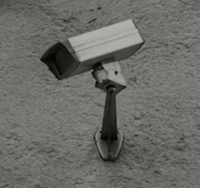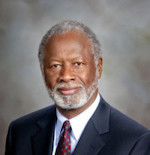Controversy grows in bribery & money-laundering case
Ohio Gov. Mike DeWine. Photo courtesy The Ohio Channel.
One staffer waited weeks — and until after an FBI raid — to inform Gov. Mike DeWine that FirstEnergy had paid Sam Randazzo a massive sum just weeks before DeWine nominated Randazzo to be Ohio’s top utility regulator.
Another staffer, while still a FirstEnergy lobbyist, founded a dark-money group that would funnel tens of millions of utility dollars into an effort to pass a $1.3 billion package that benefitted FirstEnergy, a successor company and other Ohio utilities. The staffer then became DeWine’s legislative affairs director and worked to pass the bailout bill his boss would sign — and that federal prosecutors would later say was “likely the largest bribery and money-laundering scheme ever in the state of Ohio.”
But despite the growing scandal, DeWine’s spokesman on Tuesday said both staffers continue to enjoy the governor’s support.
“Absolutely,” said Press Secretary Dan Tierney, explaining that it’s important to remember that much less was known when news of the scandal broke last summer. “It’s always difficult for anybody to keep track of what was known then versus what’s being alleged now.”
Those allegations are in a deferred prosecution agreement FirstEnergy last week entered into with federal authorities. The company agreed to pay out $230 million and it copped to at least some of its actions in the scandal.
Among them, it admitted paying $22 million over the years to entities controlled by Randazzo — including $4.3 million on Jan. 2, 2019. DeWine would nominate Randazzo to be chairman of the Public Utility Commission of Ohio on Feb. 4, 2019.
Randazzo hasn’t been charged, but the deferred prosecution agreement made the last FirstEnergy payment sound like a quid pro quo.
“FirstEnergy Corp. paid $4.3 million dollars to (Randazzo) through his consulting company in return for (Randazzo) performing official action in his capacity as PUCO chairman to further FirstEnergy Corp.’s interests relating to passage of nuclear legislation and other specific FirstEnergy Corp. legislative and regulatory priorities, as requested and as opportunities arose,” the agreement says.
Federal officials had already arrested former House Speaker Larry Householder, R-Glenford, and four associates, two of whom have pleaded guilty. Then in November, the FBI raided Randazzo’s Columbus condo.
Questions have subsequently arisen about when DeWine and his staff learned of the massive payment Randazzo took from FirstEnergy just as he assumed responsibility for regulating the energy giant.
DeWine and his staff on Monday said that Randazzo told DeWine’s then-chief of staff, Laurel Dawson, of the payment in late October — about two-and-a-half weeks before the raid. But Dawson, who now serves as counselor to the governor, waited until after the FBI raid to inform DeWine. Randazzo resigned days later.
Dawson’s relationship with Randazzo appears to go back. Last year, in the wake of the FBI raid, the Associated Press reported that during his 2019 Senate confirmation hearing, Randazzo testified that he’d been recruited to be the state’s top regulator by Dawson and Lt. Gov. Jon Husted.
Why would DeWine continue to employ Dawson after she kept news from her boss that is increasingly central to one of the biggest scandals in Ohio history?
Things look differently in hindsight, DeWine spokesman Tierney said on Tuesday.
“The information that Mr. Randazzo related to Ms. Dawson in October of last year was related to what has been termed — both by Mr. Randazzo and later (in U.S. Securities and Exchange Commission) filings as a payment that was contractually obligated in the contract between FirstEnergy and Mr. Randazzo or his corporation,” Tierney said.
He added, “I understand the deferred-prosecution agreement makes allegations related to the nature of that payment, but those allegations are different than what was related to our office and what was eventually stated in the filing to the Securities and Exchange Commission.”
Even if it were “contractually obligated,” a $4.3 million payment by a giant utility just a month before a guy becomes the state’s top regulator might be something the governor would want to know about ASAP. But Dawson waited 17 days — and only after the FBI raided Randazzo’s condo.
The DeWine administration is being accused of being less-than-transparent not only about payments Randazzo got from FirstEnergy. It’s also accused of trying to revise how transparent it was before the scandal broke about Randazzo’s history with FirstEnergy.
The governor has been saying since last summer that Randazzo’s earlier involvement with FirstEnergy was common knowledge at the time of his appointment.
“Everyone knew he worked for FirstEnergy. That was not a question,” the Statehouse News Bureau quoted DeWine as saying Monday.
Others, however, are disputing how common that knowledge was.
“Roll the tape,” Rep. Casey Weinstein, D-Hudson, said in a tweet Tuesday. “When testifying to the HB6 Select Committee I served on, I asked Sam Randazzo if he worked for (FirstEnergy) — he said he was ‘old school’ and didn’t discuss former clients.”
Tierney on Tuesday said that DeWine also continues to support his legislative affairs director, Dan McCarthy.
In last week’s deferred-prosecution agreement, FirstEnergy agreed that while he was still a lobbyist for the company in 2017, McCarthy set up a 501(c)(4) “dark-money” group on the instructions of the FirstEnergy’s top executives, who have since been fired. The agreement says that the group then funneled money into the corrupt effort to pass the 2019 bailout, House Bill 6.
Tierney said that McCarthy remains in good standing in the DeWine administration because he resigned the presidency of Partners for Progress to join the DeWine administration — a post from which he worked to pass HB 6. It was only after McCarthy joined the DeWine administration that the dark money contributions “enriching Larry Householder” started to flow, Tierney said.
Even so, the deferred prosecution agreement appears to refer to McCarthy working in this role in the administration as “Official Aide 1.”
Acting U.S. Attorney Vipal J. Patel last week said the entire scandal wouldn’t have been possible without the dark money groups. And he had harsh words for the one started by DeWine’s aide.
“These are supposed to be, according to the (tax) code, social welfare organizations. You all see a lot of social welfare going on? I don’t,” Patel said, adding, “What about these names? Partners for Progress? What are the partners here? The conspirators? What’s the progress? Passage of (the energy bailout) through bribery?”
• • •• • •
However that may be, DeWine is sticking by his people.
Asked whether the governor would ask them to resign, Tierney said, “Many of these issues have been discussed before. The governor has addressed these questions previously, so I have nothing to (add) to his previous statements of confidence in Ms. Dawson and Mr. McCarthy.”















